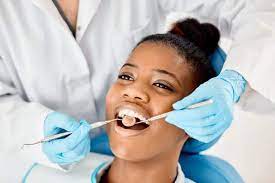Teeth Grinding Troubles: Dental Care for Bruxism Management
Bruxism, the unconscious grinding or clenching of teeth, can lead to a range of dental and overall health issues. From worn-down teeth to jaw pain, managing bruxism is important for maintaining your oral well-being. Consider Tigard Dental If you suspect you’re grinding your teeth, here’s what you need to know about dental care for bruxism management:
- Diagnosis: If you’re experiencing symptoms such as jaw pain, headaches, worn teeth, or facial muscle soreness, consult your dentist. They can diagnose bruxism through a dental examination and discuss your symptoms and habits.

- Night Guards or Splints: One common approach to managing bruxism is wearing a night guard or splint. These custom-made devices are worn during sleep to protect your teeth from the damaging effects of grinding and clenching.
- Stress Management: Stress and anxiety can contribute to bruxism. Managing stress through relaxation techniques, exercise, and mindfulness can help alleviate bruxism symptoms.
- Lifestyle Modifications: Avoiding caffeine, alcohol, and tobacco before bedtime may help reduce bruxism. These substances can exacerbate teeth grinding.
- Dental Treatment: Your dentist can address dental issues caused by bruxism, such as repairing worn teeth or reshaping surfaces to improve your bite. They can also recommend treatments to restore your smile’s appearance.
- Bite Adjustments: In some cases, an uneven bite can contribute to bruxism. Your dentist may recommend bite adjustments or orthodontic treatments to improve your bite alignment.
- Muscle Relaxation Exercises: Practicing relaxation exercises for the jaw and facial muscles can help reduce clenching and grinding behaviors.
- Medications: In certain situations, your dentist or doctor may recommend muscle relaxants or medications to address pain and muscle tension associated with bruxism.
- Dental Check-ups: Regular dental check-ups are essential for monitoring the effects of bruxism on your oral health. Your dentist can track any changes and adjust your treatment plan accordingly.
- Mindful Behavior Modification: During waking hours, pay attention to your jaw and facial muscles. If you catch yourself clenching or grinding, consciously relax your jaw and position your teeth slightly apart.
- Avoid Chewing on Hard Objects: Chewing on pens, pencils, or other hard objects can contribute to teeth grinding. Avoid this habit to reduce strain on your jaw.
- Hydration: Staying hydrated can prevent dry mouth, which can exacerbate bruxism. Drink water throughout the day to keep your mouth moisturized.
- Professional Guidance: A dentist experienced in treating bruxism can provide tailored advice and strategies to manage your specific case.
- Treating Underlying Issues: In some cases, bruxism may be a symptom of an underlying medical condition. Treating the underlying issue may help alleviate teeth grinding.
Managing bruxism requires a combination of dental care, lifestyle adjustments, and stress management. Consulting your dentist is crucial for a proper diagnosis and the development of an effective treatment plan. With the right approach, you can alleviate the discomfort and potential dental damage caused by bruxism, improving your overall oral health and quality of life.


